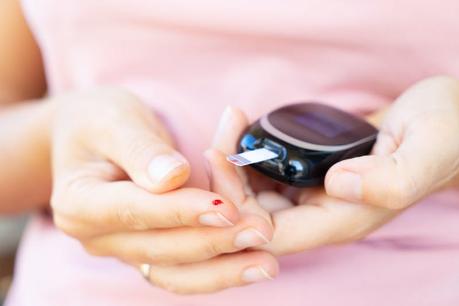
A new study, accepted for publication by The Journal of Diabetes Science and Technology, found that patients hospitalized with COVID-19 who had either diabetes (defined as an HbA1c above 6.5%) or uncontrolled high blood sugar (above 180mg/dL) had a mortality rate of 29% compared to a mortality rate of just 6% for patients without either of those conditions.
This is not a surprise, given that all the data we have seen thus far consistently shows diabetes as one of the greatest risk factors for severe complications from COVID-19.
However, this recent study also showed that 42% of people who did not have a diagnosis of diabetes on admission but developed uncontrolled hyperglycemia during their hospitalization died. That's an astonishing death rate considering they could be considered to have "no pre-existing illness."
An important disclaimer is that this study came from data collected by a company that specializes in software for insulin management. While this provides for a serious selection bias in the data, it still suggests a significant increased risk from acute hyperglycemia, even in the absence of pre-existing diabetes.
While the company may use this data to support the need for tighter glucose control using more insulin, I think we should use it to show the importance of underlying metabolic disease. As we have mentioned in our prior posts on this topic, the absence of type 2 diabetes is not the same as being metabolically healthy.
Pre-diabetes, insulin resistance and metabolic syndrome all signify underlying metabolic dysfunction and are all versions of a troubled glucose and insulin system.
And now we are starting to see how this could place patients at higher risk.
Scientific American recently published a review, "How Blood Sugar Can Trigger a Deadly Immune Response in the Flu and Possibly COVID-19." The authors reference papers showing how glucose metabolism plays a "role in the cytokine storm" with influenza, and they hypothesize it could be the same with COVID-19.
While none of this is conclusive science, it contributes to growing evidence that we need to be more aware of our metabolic health, including our blood sugar, now more than ever. That applies to how we live our daily lives and it applies to how doctors manage patients in the hospital.
For instance, as Dr. Christopher Stadtherr wrote in his guide on low-carb and lung disease, studies have shown that for those who cannot eat and need intravenous feedings (which happens to many people who are intubated), low-carb, high-fat formulations beneficially decrease the work of breathing compared to higher carb formulations.
Using low carb feedings in the hospital could have a double benefit. It could both lower the risk of elevated blood sugar and help lower the work of breathing. Although we don't have large trials showing this, it could make sense to consider it for acutely ill COVID-19 patients.
In the hospital and at home, carbohydrate restriction works. It is the best nutritional intervention to control blood sugar. While it may not be the only answer, it is an option we should all consider as clinicians and individuals during these trying times.
Thanks for reading,
Bret Scher, MD FACC
Earlier
Bad science is bad science, no matter what the conclusions Obesity as a risk factor for coronavirus complications Are all diets the same for weight loss and cardiac risk?Start your FREE 30-day trial!
Get delicious recipes, amazing meal plans, video courses, health guides, and weight loss advice from doctors, dietitians, and other experts.
Join now

